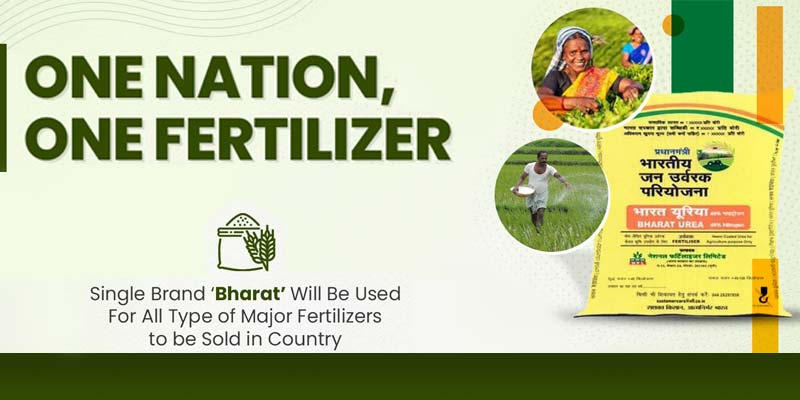- India
- Oct 18
Explainer / What is ‘One Nation, One Fertiliser’ scheme?
Prime Minister Narendra Modi launched Pradhan Mantri Bhartiya Jan Urvarak Pariyojana — One Nation, One Fertiliser (ONOF) — under which it is mandatory for companies to market subsidised fertiliser under single brand ‘Bharat’.
With single branding, the competition among companies that push their brands will get reduced. It will also ensure sufficient supply of fertilisers across the country.
The PM also inaugurated 600 Pradan Mantri Kisan Samruddhi Kendras (PM-KSK).
What is the significance of ONOF?
• In the last financial year, the central government incurred a fertiliser subsidy bill of Rs 1.62 lakh crore. In view of a sharp rise in global prices in the last 5-6 months, the government’s subsidy bill is estimated to rise to Rs 2.25 lakh crore in the current fiscal.
• The government subsidises 80 per cent of the retail price of urea, 65 per cent of Di-ammonium Phosphate (DAP), 55 per cent of NPKs and 31 per cent of Muriate of Potash (MoP) prices. Freight subsidy is also provided in the range of Rs 6,000-9,000 crore annually.
• There is a criss-cross movement of fertilisers across states, causing delays in the transportation of soil nutrients and putting a freight subsidy burden on the government.
• The whole idea behind introducing a single brand is to stop this criss-cross movement, ensure companies sell their products in close vicinity of their manufacturing units and avoid unnecessary transportation.
• Prior to 2019, fertilisers were moved via railway rakes as far as 900-1000 km, which was later reduced to 850-900 km in 2019-20 and up to 700-750 km level in 2020-21. The government’s aim is to bring down further the distance coverage of rail movement of fertiliser to 500 km by preventing criss-cross movement.
• The initiative will increase and ensure the availability of fertilisers, streamline the supply process without bottlenecks, bring uniformity in fertiliser supply, control unhealthy competition among companies, and reduce the freight subsidy burden.
• This will also strengthen the real-time monitoring of movement, availability, and sales of fertiliser in a state.
• The government is making available fertilisers, namely urea and 25 grades of P&K fertilisers to farmers at subsidised prices through fertiliser manufacturers/importers.
• To make fertilisers available at cheaper rates, the government buys urea at the rate of Rs 75-80 per kg from the global market, but sells to farmers at Rs 5-6 per kg.
PM-Kisan Samruddhi Kendras
• PM Modi also inaugurated 600 ‘PM-Kisan Samruddhi Kendras’ (PM-KSK) and these will act as one-stop shops that would provide multiple services to farmers.
• PM-KSK will not only supply agri-inputs like seeds, fertilisers and farm implements, but also provide testing facilities for soil, seeds and fertilisers, besides information about government schemes.
• At present, fertiliser retail shops in the country are company-managed, cooperative shops or retailed to private dealers. These retail shops will now be converted into PM-KSKs.
• More than 3.3 lakh retail fertiliser shops will be converted into PM-KSK across the country.
Manorama Yearbook app is now available on Google Play Store and iOS App Store

